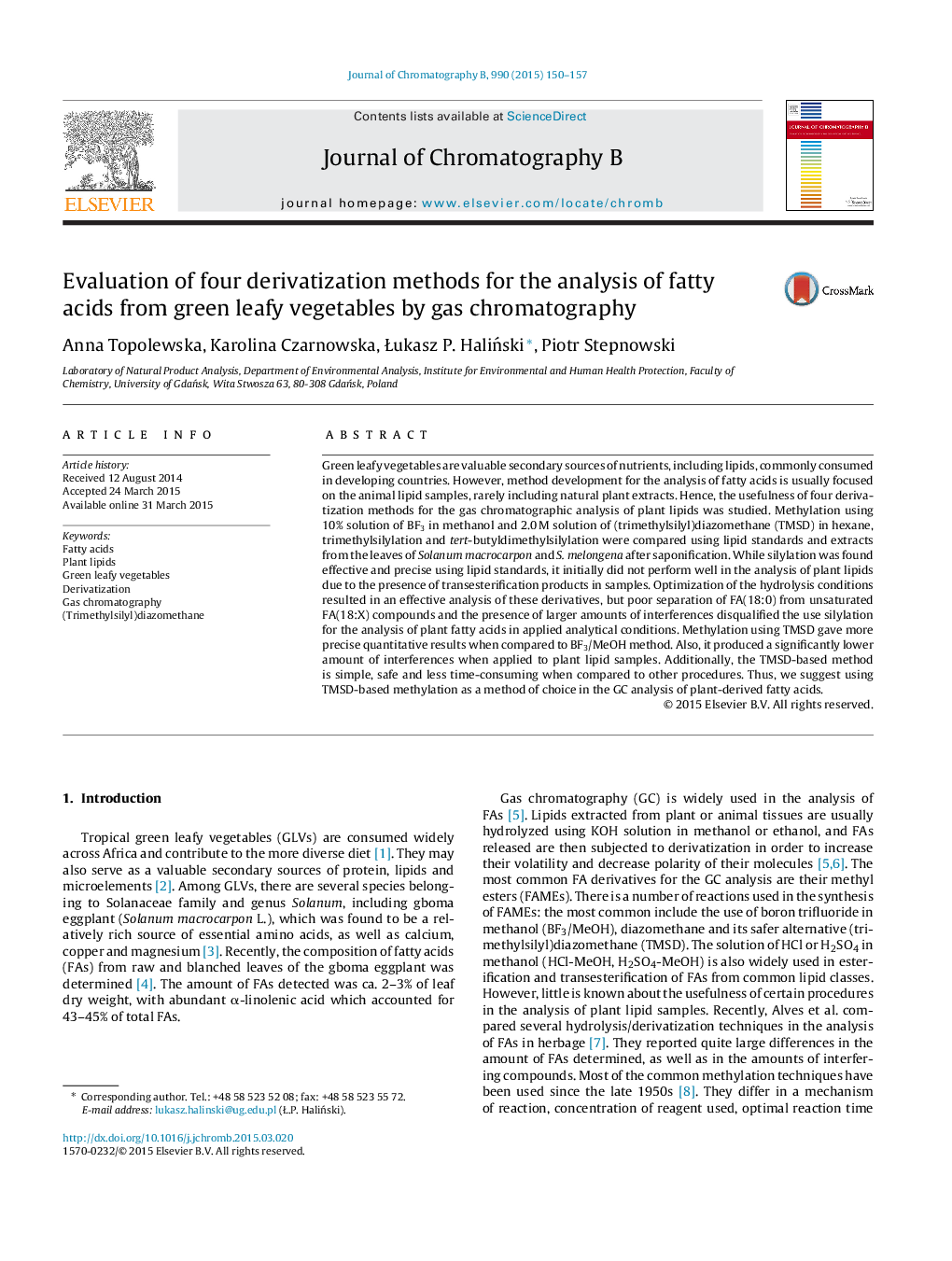| کد مقاله | کد نشریه | سال انتشار | مقاله انگلیسی | نسخه تمام متن |
|---|---|---|---|---|
| 1212229 | 1494058 | 2015 | 8 صفحه PDF | دانلود رایگان |
• Four methods of standard and plant fatty acid derivatization were compared.
• Silylation was very precise, but the separation of FA(18:X) compounds was poor.
• Methylation using TMSD was more precise than standard BF3/MeOH procedure.
• The amount of interferences in plant lipid samples was the lowest when TMSD was used.
Green leafy vegetables are valuable secondary sources of nutrients, including lipids, commonly consumed in developing countries. However, method development for the analysis of fatty acids is usually focused on the animal lipid samples, rarely including natural plant extracts. Hence, the usefulness of four derivatization methods for the gas chromatographic analysis of plant lipids was studied. Methylation using 10% solution of BF3 in methanol and 2.0 M solution of (trimethylsilyl)diazomethane (TMSD) in hexane, trimethylsilylation and tert-butyldimethylsilylation were compared using lipid standards and extracts from the leaves of Solanum macrocarpon and S. melongena after saponification. While silylation was found effective and precise using lipid standards, it initially did not perform well in the analysis of plant lipids due to the presence of transesterification products in samples. Optimization of the hydrolysis conditions resulted in an effective analysis of these derivatives, but poor separation of FA(18:0) from unsaturated FA(18:X) compounds and the presence of larger amounts of interferences disqualified the use silylation for the analysis of plant fatty acids in applied analytical conditions. Methylation using TMSD gave more precise quantitative results when compared to BF3/MeOH method. Also, it produced a significantly lower amount of interferences when applied to plant lipid samples. Additionally, the TMSD-based method is simple, safe and less time-consuming when compared to other procedures. Thus, we suggest using TMSD-based methylation as a method of choice in the GC analysis of plant-derived fatty acids.
Journal: Journal of Chromatography B - Volume 990, 15 May 2015, Pages 150–157
